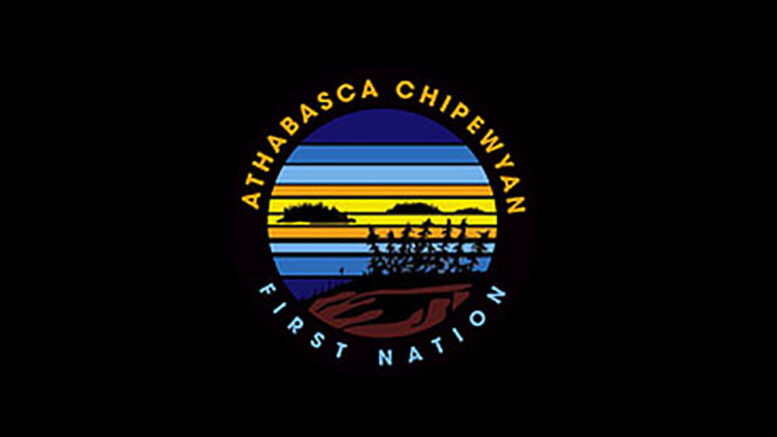By Jeremy Appel, Local Journalism Initiative Reporter
(ANNews) – Athabasca Chipewyan First Nation (ACFN) has joined environmentalist groups in calling on the federal government to examine the effects of naphthenic acids found in tar sands tailing ponds.
This comes a week after ACFN Chief Allan Adam served Alberta Energy Regulator CEO Laurie Pushor with lawsuit papers, accusing the regulator of concealing overflow from the tailing pond at Imperial Oil’s Kearl mine from the downstream Indigenous communities.
In January, the Canadian government declined to include naphthenic acids in a list of substances regulated under the Environmental Protection Act based on a review of the acids’ presence in consumer goods, which found they carried “low potential for ecological risk.”
On March 11, the environmental law firm Ecojustice submitted a request to Minister of Health Mark Holland and Minister of Environment and Climate Change Steven Guilbeault to prioritize a risk assessment of naphthenic acids pecifically in tailing ponds on behalf of ACFN, Environmental Defence Canada and Keepers of the Water.
Misikew Cree Nation is preparing a similar request to the federal government, according to Ecojustice.
The concentration of naphthenic acids found in tar sands tailing ponds are “acutely lethal to fishes and other aquatic organisms,” according to a 2011 study in the Ecotoxicology and Environmental Safety academic journal.
While there has been little research into their impact on human health, these acids have been identified as a hormonal disruptor in amphibians who live near tailing ponds.
Ecojustice wants the federal government to study the impact of these toxins to ensure Indigenous communities are protected from any negative health and environmental effects emanating from tailings ponds.
Bronwyn Roe, an Ecojustice lawyer, said in a news release that the government has a legal obligation under the Environmental Protection Act to conduct risk assessments of toxic substances.
“Naphthenic acids are a known threat to species and the environment and pose risks to human health. They should be further investigated to understand the full breadth of their toxicity, and to ensure government adopts the measures necessary to protect people and the environment,” said Roe.
Chief Adam has long suspected that higher rates of certain cancers in Fort Chipewyan, where many ACFN members live, were the result of tar sands pollution. The Kearl spill has provided an added sense of urgency to his demand for answers.
“Not a month goes by without news of someone else becoming sick, or dying. I don’t know how much more of an alarm we have to raise before Canada takes its obligations to protect our health seriously,” said Adam.
“The Imperial spill has impacted lands we rely upon for our culture, and for food security. Canada isn’t even trying to assess what the impact to our health could be.”
Keepers of the Water executive director Jesse Cardinal noted that scientists have already confirmed “what Indigenous communities already know, understand and share often” — that naphthenic acids “are cancer-causing chemicals that affect hormones in people because it’s proven that they affect hormones in wildlife.”
Aliénor Rougeot, climate and energy program manager at Environmental Defence Canada, added that “governments have allowed companies to fill up vast open pits with dangerous chemicals without properly investigating the risks they pose to human life and wildlife.”
In June 2023, the government updated the Environmental Protection Act to give the minister the express authority to collect information on tailings ponds.
Rougeot suggested now would be a good time for Guilbeault to use that power.
“We expect the assessment will confirm the toxicity of naphthenic acids from tar sands tailings. The government must be prepared to follow up with swift action to protect communities and ecosystems from further toxic exposure,” she said.



Be the first to comment on "Athabasca Chipewyan Nation asks feds to study health effects of tailing pond acids"